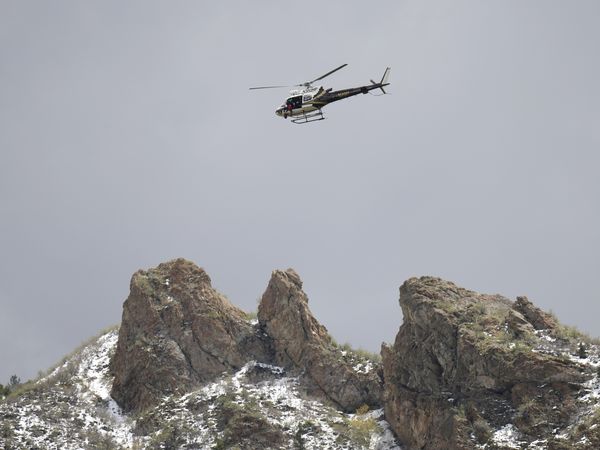
What did Channel Seven pay to get its exclusive “let’s light some fires” interviews with the alleged rapist Bruce Lehrmann?
The interviews, on Seven’s Spotlight program, scored high ratings, the network so proud that it entered itself in the “All Media Scoop of the Year” category for the 2023 Walkley Awards. Its public position was that it had made no payment to Lehrmann, but had assisted with “accommodation as part of the filming of the story” — mere logistics.
When Lehrmann’s defamation case against Network Ten and Lisa Wilkinson made it to trial last December, the story changed. The evidence revealed that Seven had signed a contract with Lehrmann to put him up in a Sydney pad at a weekly rent of $2,000 for a year.
The revelation caused the Walkley Foundation to revoke Spotlight’s finalist status, because it “should have been equipped with all the relevant information about payments made or benefits flowing” to Lehrmann, and hadn’t been.
Seven dismissed the umpire’s ruling, maintaining that it had “in disclosing its arrangement with Bruce Lehrmann, fully met the entry criteria”.
That’s where the story rested until last month, with Sam Maiden’s scoop on news.com.au: an allegation that Seven had also paid for Lehrmann to get the benefit of a $1,000 “massage” while it was duchessing him.
Moving to reopen its defence of the defamation case, Ten put into evidence a whole new ballgame: allegedly, now, the list of benefits provided by Seven to Lehrmann is quite long. It includes expensive meals (a $361 steak!), a $400 round of golf in Tasmania, $10,000 worth of Thai massages, and reimbursement for drugs and sex workers at a Sydney brothel. It is all yet to be tested in court.
Media Watch compere Paul Barry tweeted that, if half of what’s been alleged is true, Spotlight is “an absolute disgrace”. How so?
Spotlight purports to be a current affairs program, specialising in investigative reporting. It represents, explicitly and implicitly, to its audience that what it puts to air is serious news, material that has been carefully compiled, fact-checked and reviewed for compliance with the legal and ethical obligations that bind the business of journalism.
The Lehrmann interviews ticked the box of legitimate public interest, given the prominence of the aborted rape trial and its background context, although one might question the public benefit of providing a platform to a man whose sole claim to fame is that he was accused of a rape which he denies and of which he was not convicted. He had maintained his right to silence through the criminal process, and he was entitled to break that silence, but that does not mean it was responsible journalism to hand him a megaphone.
It would have been apparent to anyone who watched the interviews that an editorial decision had been made to allow Lehrmann to use them as a platform for advancing his side of the story, unchallenged. What was not disclosed was the reason for this decision.
As it turns out, even on the so-far established facts, Seven had made a substantial financial commitment to secure the exclusive with Lehrmann. Its disclosure — not in the program itself but subsequently — that it had “assisted with accommodation” was a misrepresentation of the truth.
Consequently, the audience had been misled. Journalism is, ethically and by reputation, the reportage of news on an independent, impartial and unbiased basis. That requires an absence of incentives towards partiality. If any such incentive exists — and a commercial arrangement is the most obvious — then its transparent disclosure becomes paramount.
Obviously, if the audience knows that an interview subject has been paid to appear, it will apply a different lens of judgment to what he or she says than it would if their participation had been voluntary. Lehrmann was the former, advertised as the latter.
That question of judgment applies to the medium as well. We rightly view chequebook journalism sceptically, because at its root is the pursuit of money, not truth. Knowing that Spotlight paid handsomely for Lehrmann informs everyone not just about how much credence they should give what he said on the program, but also how they should view the program’s journalism generally.
The Walkley Foundation announced after the Spotlight scandal that it would review its terms of entry, with a view to ensuring transparency and full disclosure around chequebook journalism. Its rules now explicitly require entrants to declare any payments or benefits including payments or material gifts given in exchange for interviews or information.
That’s something all media organisations knew already and should have been doing automatically. Disclosure as part of an awards nomination should be otiose anyway, because it should always be done at the time and as part of the publication or broadcast of the material that’s been bought. There is no other way to ensure the audience will not be deceived.
The Media, Entertainment & Arts Alliance maintains a journalist code of ethics, binding its own members. It also requires disclosure of “any direct or indirect payment made for interviews” etc.
The point is that none of this is new or obscure. Journalism operates with a social licence, the quid pro quo for the press freedom that the media so fiercely defends and society accepts is a key pillar of democracy. Licences have conditions; among the most important is the promise of impartial reporting.
The Lehrmann interviews were incapable of being represented as impartial, because they had been bought and paid for. Seven’s failure to disclose this and, far worse, its active concealment of the truth, perpetrated a fraud on the public. That was a gross breach of the terms of its social licence — as Barry said, “an absolute disgrace” — for which it should be (but won’t be) held to account.
How do you view Seven’s conduct in securing an interview with Bruce Lehrmann? Let us know by writing to letters@crikey.com.au. Please include your full name to be considered for publication. We reserve the right to edit for length and clarity.







